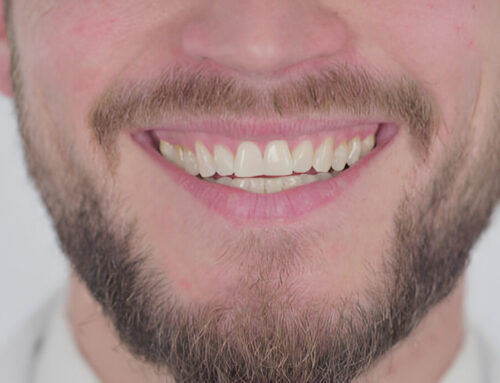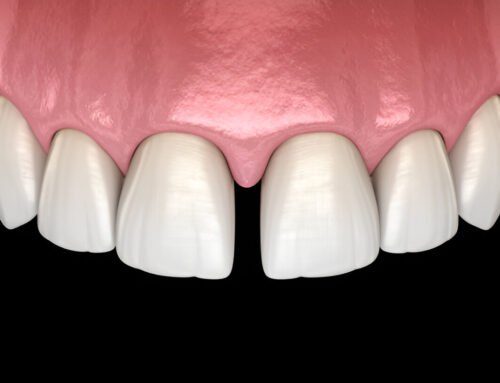Can Composite Bonding Straighten Teeth? All You Need To Know
In today’s world, a straight, confident smile is highly valued. Crooked teeth can affect your self-esteem, whether you’re a child, teen, or adult. Modern cosmetic dentistry offers several solutions. They can help you get a straighter smile. One of these solutions is composite bonding. This article explores how composite bonding can help straighten teeth. It covers the procedure, benefits, and things to consider.
What Is Composite Bonding?
Composite bonding is a cosmetic dental procedure. It uses a tooth-coloured resin to improve teeth. The resin can reshape, repair, and enhance teeth. It is an ideal option for small cosmetic changes. The procedure is minimally invasive, often pain-free, and doesn’t usually require anesthesia.
How Does Composite Bonding Work?
During composite bonding, a dentist applies a tooth-coloured resin to your teeth. This resin is then shaped and moulded to achieve the desired look. A special light hardens the resin. The dentist polishes it to blend with your natural teeth. The whole process is usually done in one visit. It is a quick and convenient option.
Can Composite Bonding Straighten Teeth?
Composite bonding can help improve the appearance of slightly crooked or misaligned teeth. It’s a suitable option for patients with minor misalignment, gaps, or misshapen teeth. Dentists can add resin in key places. This creates the illusion of straight teeth.
However, composite bonding does not change the position of the teeth. It is a cosmetic solution rather than an orthodontic one. For more severe misalignment or overcrowding, you may need orthodontic treatments. These include braces or clear aligners.
Can You Have Tooth Bonding with Gum Disease?
Benefits of Composite Bonding
Quick Results: One of the main advantages of composite bonding is the speed of the procedure. You can achieve a transformed smile in just one visit.
Cost-Effective: Composite bonding is cost-effective. It costs less than other cosmetic treatments, like veneers or orthodontics.
Minimally Invasive: The procedure involves minimal removal of the tooth’s natural structure. It’s often pain-free and doesn’t require anesthesia.
Natural Appearance: The resin used in composite bonding matches the color of your natural teeth. This ensures a natural look.
Reversible: Unlike some other dental procedures, composite bonding is reversible. If you decide to pursue a different treatment later, the bonding can be removed.
Is Composite Bonding Done on the NHS?
Maintenance and Longevity
Composite bonding can last several years with proper care. To maintain your bonded teeth, follow these tips:
Oral Hygiene: Brush twice a day and floss daily to keep your teeth and gums healthy.
Avoid Staining Foods and Drinks: Limit coffee, tea, and tobacco, especially in the first 48 hours after the procedure, to prevent staining.
Regular Dental Visits: Schedule regular check-ups to monitor the condition of your bonded teeth.
Avoid Hard Foods: Be mindful of biting into hard foods that could chip the resin.
With proper care, composite bonding can last between 5 to 7 years. The resin may wear down or discolour over time, but it can be easily repaired or replaced.
How Much is Composite Bonding?
Limitations of Composite Bonding
While composite bonding offers many benefits, it’s important to be aware of its limitations:
Not Suitable for Severe Misalignment: For significantly crooked teeth, composite bonding may not be effective. Orthodontic treatments are necessary for severe cases.
Potential for Staining: Composite resin can stain over time, especially with exposure to staining substances.
Durability: The material is durable but not as strong as natural teeth or other dental materials. It can chip or crack with excessive force.
Combining Composite Bonding with Other Treatments
For some patients, combining composite bonding with other treatments can enhance the results. Teeth whitening, for example, can be done before bonding to ensure a uniform colour. Orthodontic treatments can also be followed by bonding. This refines the final look of your smile.
Consultation and Cost
Before choosing composite bonding, you must consult with a skilled dentist. They can evaluate your teeth. They will discuss your goals and decide if bonding is right for you. The cost of composite bonding varies. It depends on the number of teeth treated and the complexity of the case. On average, it can cost about £200 per tooth. It is a cost-effective solution for minor adjustments.
Conclusion
Composite bonding is a flexible and effective cosmetic dental procedure. It can improve the look of slightly crooked teeth. It offers quick results, is cost-effective, and provides a natural-looking smile. However, it’s essential to understand its limits. Consult with a dentist to see if it’s right for you. With proper care, composite bonding can give you a confident, beautiful smile. It can last for years.
Ready for a Straighter Smile? Contact Broxburn Smile Centre Today!
If you’re considering composite bonding to improve your smile, the Broxburn Smile Centre can help. Our skilled dentists are experienced. They are dedicated to providing top-quality care and personalised plans. Book a free consultation with us. We will discuss your options and see if composite bonding is right for you. Achieve the smile you’ve always dreamed of with Broxburn Smile Centre.
Contact us today to schedule your appointment. It’s the first step to a beautiful, confident smile!
FAQs About Composite Bonding
How long does composite bonding last?
Composite bonding can last 5 to 7 years with proper care. Regular dental visits and good oral hygiene help maintain its appearance and durability.
Is composite bonding painful?
No, composite bonding is typically pain-free. The procedure doesn’t usually require anesthesia, and patients experience minimal discomfort.
Can composite bonding fix large gaps?
Composite bonding can effectively fix minor gaps. For larger gaps, orthodontic treatments like braces or clear aligners might be more suitable.
How do I care for bonded teeth?
Maintain bonded teeth by brushing twice daily, flossing, and avoiding hard or staining foods. Regular dental check-ups are also essential.
Can I whiten my teeth after bonding?
It’s best to whiten teeth before bonding. Post-bonding whitening can cause colour mismatch since the resin won’t bleach like natural teeth.
Does bonding damage natural teeth?
No, bonding is minimally invasive and doesn’t usually harm the natural tooth structure. The resin is applied directly to the tooth’s surface.










